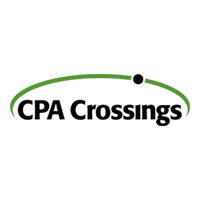
What do investors want? They actively pursue three key strategies; 1) improve profit (most over used strategy), 2) reduce investment (an under ...
4/5/2024 10:00am - 12:00pm | Online | CPA Crossings
$89.00
CPE Categories: Specialized Knowledge & Applications (2 CPE)
What do investors want? They actively pursue three key strategies; 1) improve profit (most over used strategy), 2) reduce investment (an under used strategy), and 3) reduce risk (a much-neglected strategy). In this second of three sessions, see 2) above, we will explore strategies to improve asset utilization and reduce investment. We will discuss proven techniques to help your organization thrive.
Presented by The Knowledge Institute, LLC
Corporate Financial Leaders, Corporate Financial Managers, CEOs, CFOs, Controllers, Accountants, Board members, advisors, and Consultants. CPAs in public practice and CPAs in industry. Business owners, entrepreneurs and professionals who are interested in enhancing the bottom line.
At least six (6) months of professional financial statement analysis experience, or at least six (6) credit hours of corporate finance classwork at an accredited university.
© Copyright 2024 KSCPA | All Rights Reserved